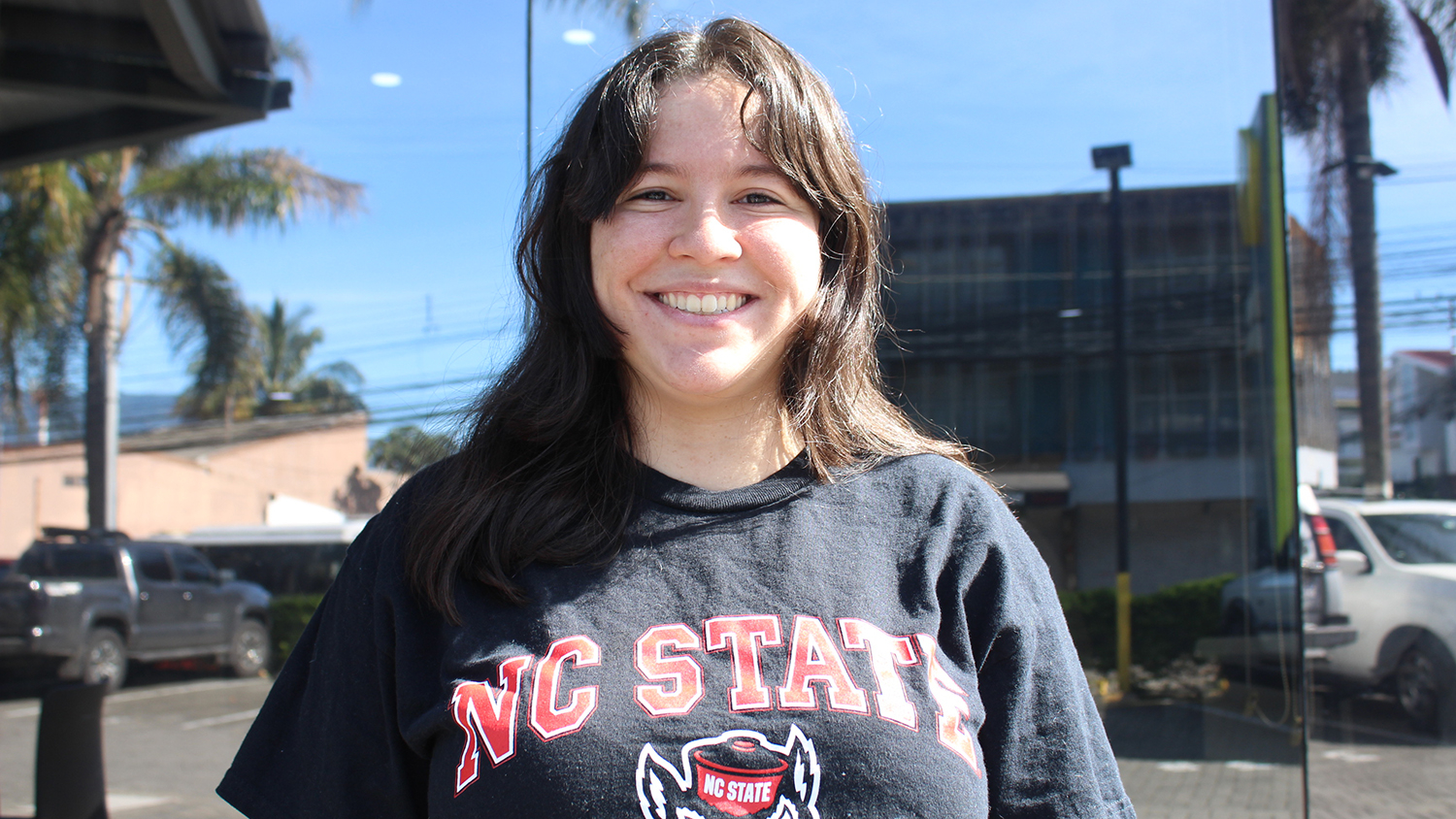At NC State, innovation and entrepreneurship are not just buzzwords—they define how our students, faculty and alumni tackle some of the world’s biggest challenges.
A perfect example is Reid Barnett, Ph.D. candidate in fiber & polymer science at the Wilson College of Textiles, whose startup, Ceretune LLC, is setting new standards in sustainable environmental engineering.
From Eastern North Carolina to Global Impact
Barnett’s journey into entrepreneurship blends personal roots and academic curiosity. Growing up with a family that farms hogs in Eastern NC, Barnett saw firsthand how nutrient pollution—runoff rich in nitrogen and phosphorus—threatened local waterways. This experience would become foundational to his innovative idea.
While a student in textile engineering and a Centennial Scholar at Wilson College of Textiles, Barnett began exploring how nonwoven textiles might be leveraged in environmental solutions. His Ph.D. work in fiber and polymer science has since enabled him to bring more rigorous research and prototyping to Ceretune.
Ceretune LLC: Floating Islands, Big Promise
Ceretune’s core innovation is floating bio-scaffolds built on nonwoven hollow fibers. Plants are embedded in these floating islands; as they grow, they take up excess nutrients from the water. When harvested, the pollutants are removed.

By sharing revenue from nutrient credits and byproducts, Ceretune creates a dual benefit: reducing pollution while also giving farmers a new income stream. This circular model strengthens adoption by aligning environmental outcomes with financial incentives.
Key features:
- Low cost to customers: Barnett’s model is designed so farmers (especially hog farmers) can host these islands without bearing heavy costs. Revenue comes through carbon credits and nutrient offsets, which are shared with participating landowners.
- Local testing, broad scalability: Barnett has already done prototype trials in swamps, hog lagoons, ponds and ornamental water bodies near home.
- Strong institutional support: Ceretune has access to NC State facilities like the W. Duke Kimbrell Flex Factory and The Nonwovens Institute for prototyping and testing.
Winning Pitch to the Pack and What It Signifies
In early 2025, Reid won first place in the inaugural Pitch to the Pack competition, a Wilson College of Textiles initiative supported by Wells Fargo. The competition is modeled after “Shark Tank”-style pitches, bringing together students, faculty, staff and alumni to propose textile-related business ideas. Want to learn more about Pitch to the Pack? Read this article about his success.
Barnett’s win came with:
- A spot in the 2025 Andrews Launch Accelerator cohort with a sponsorship from Wilson College of Textiles and Wells Fargo (~$10,000)
- $10,000 for prototyping and testing work in the Flex Factory
More than just the prize, Barnett cites the experience as pivotal. Through this experience, he refined his pitch, dug into the financials of his business model, iterated through prototypes and learned what different judges value in a pitch.
NC State’s Innovation & Entrepreneurship Ecosystem in Action
Barnett’s story showcases many of NC State’s strengths when it comes to supporting innovators:
| Ecosystem Component | How It Helped |
| Multidisciplinary mentorship and faculty support | From textile engineering to bio and agricultural engineering, Barnett had access to expertise in multiple fields. |
| Hands-on prototyping and state-of-the-art facilities | The Flex Factory, The Nonwovens Institute and opportunities in Senior Design and lab facilities give students physical space and technical resources. |
| Entrepreneurial programming | Pitch competitions like Pitch to the Pack, accelerator sponsorships and structured critique help refine ideas and prepare students for realistic business challenges. |
| Local connection & scalability | Barnett’s work is grounded in local issues (like hog lagoon runoff) but has potential for broader application. This ties community impact with innovation. |
What’s Next?
Over the next year, Barnett is focused on bringing Ceretune’s minimum viable product (MVP) to market. With support from NC State facilities and competition funding, he is scaling prototypes and launching pilot partnerships with local farms to validate the technology in real-world conditions. These trials will provide critical data on nutrient removal, operational costs and revenue potential from environmental credits and byproducts.
By proving both environmental impact and farmer revenue benefits, Ceretune aims to demonstrate a scalable business model that can attract venture capital. Barnett sees this early market presence not just as a technical milestone, but as a foundation for expanding Ceretune’s reach—turning a local solution into a sustainable, revenue-sharing model for farmers and communities everywhere.
These pilot projects will not only validate the technology but also establish early customer traction. With this data, Barnett aims to demonstrate proof of market scale, laying the groundwork for attracting venture capital and scaling Ceretune’s impact.
Conclusion: Why Barnett’s Success Matters
Reid Barnett embodies what NC State aims for at the intersection of innovation, entrepreneurship and societal benefit. His journey highlights how the university’s ecosystem—spanning research, facilities, mentorship and programs—can transform an idea born from local observation into a venture with the potential for global environmental impact.
Ceretune is more than a startup. It’s a model for how textile engineering and sustainability can work hand in hand. With continuing institutional support, grounded testing and a sharpened business model, Barnett is well-positioned to lead NC State’s next generation of entrepreneurs solving real challenges.
This post was originally published in Entrepreneurship News.
- Categories:



